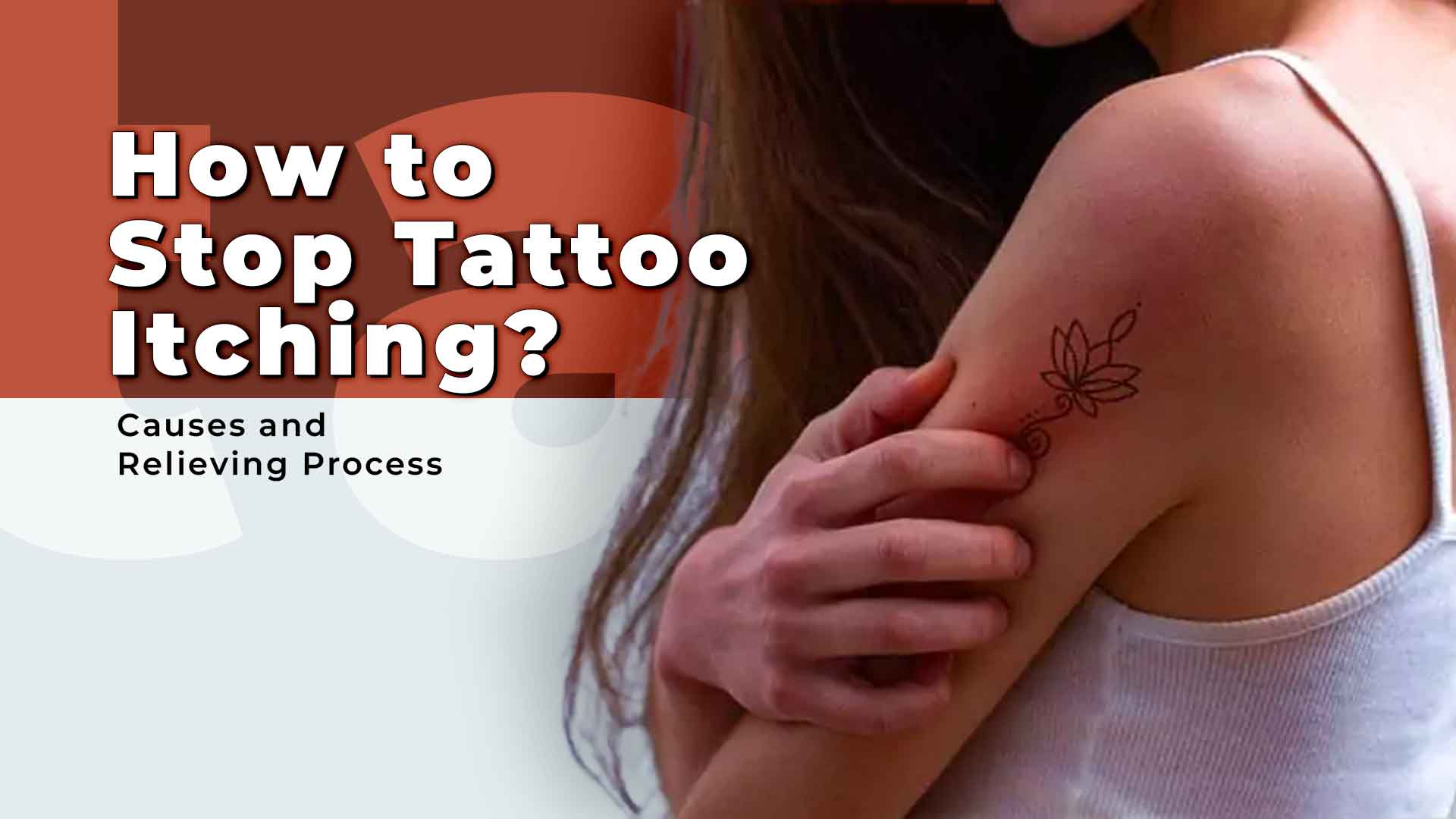You’ve just gotten a new tattoo, and now that little tickle has turned into a full-fledged scratch attack on your arm ink. But why is it itching so much?
While it’s common for tattoos to be itchy during the healing process, there can be other reasons behind the relentless itch. However, one important rule remains: don’t scratch! You don’t want to risk damaging your beautiful tattoo.
In this article, we’ll delve into tattoo itching, exploring the possible causes and providing practical solutions to conquer itchiness. Get ready to uncover the secrets of tattoo itching and discover how to keep your ink looking flawless and itch-free.
Table of Contents
ToggleWhat Causes Tattoo Itching?
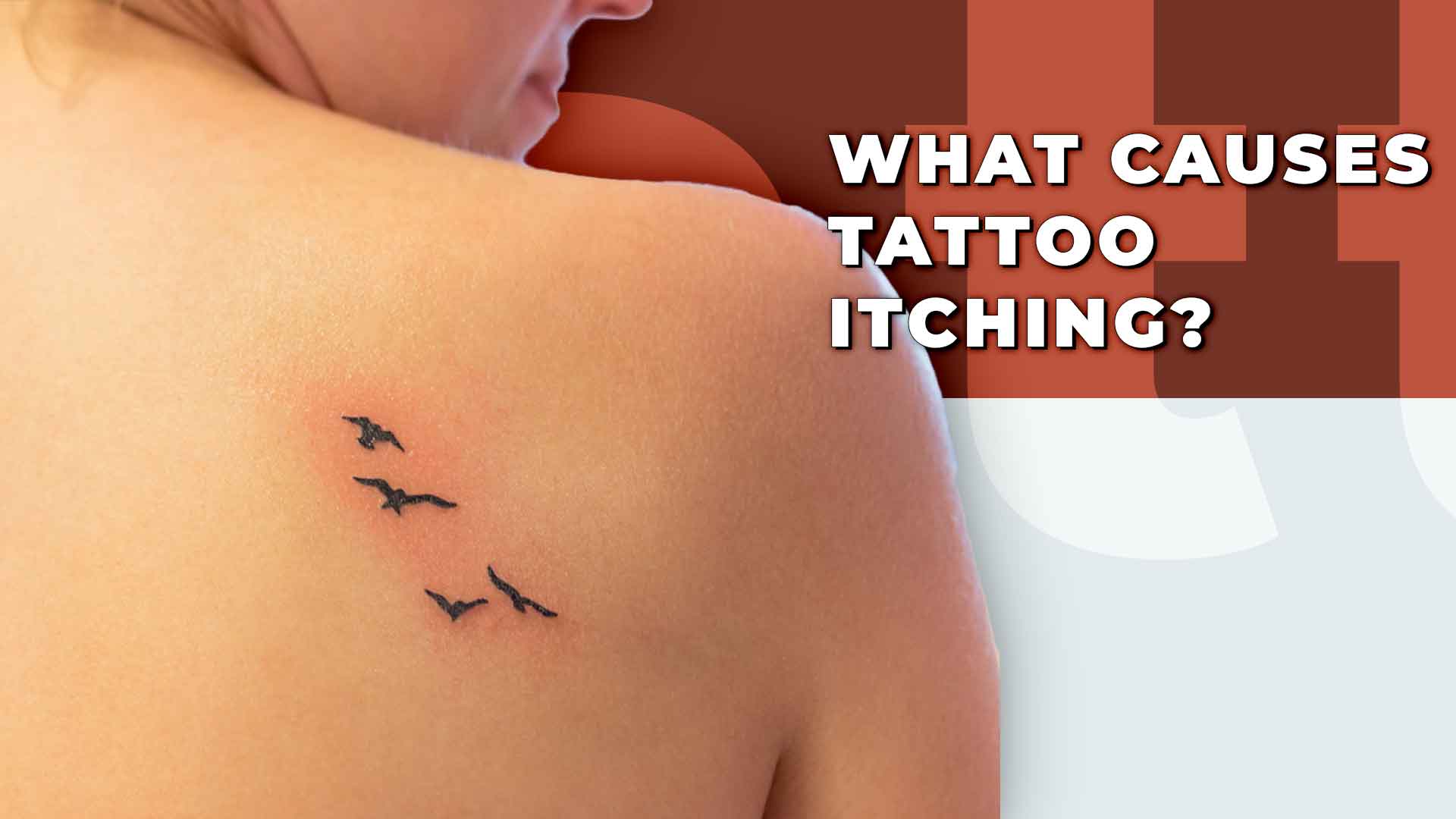
When you get a tattoo, your skin is healing; itching is natural. Here’s why tattoo itching happens and how you can manage it.
During the tattoo healing, your body works to repair the skin punctured by the tattoo needle. This healing process involves the formation of a scab and the growth of new skin cells. As these new cells develop, they can cause itching sensations.
Sometimes, people may also experience an allergic reaction to tattoo ink or the products used for aftercare. This can lead to irritation and itching. If you notice any signs of an allergic response, such as excessive redness, swelling, or a rash, consult a healthcare professional.
Another reason for tattoo itching is dryness and peeling of the healing tattoo. As your tattoo heals, it may go through a stage where the skin becomes dry and peels. This can cause itchiness but try not to scratch or pick at the tattoo, as it can delay the healing process and increase the risk of infection.
Moreover, you should follow proper aftercare instructions to minimize itching and promote healing. Some common mistakes in aftercare can lead to itchings, such as over-applying ointments or creams, using harsh soaps or cleansers, or exposing the tattoo to excessive moisture or sunlight. These actions can irritate the skin and prolong the healing process.
To ease tattoo itching, try these tips:
- Keep your tattoo clean by washing it gently with soap and lukewarm water.
- Apply a thin layer of fragrance-free and hypoallergenic moisturizer recommended by your tattoo artist or a healthcare professional.
- Avoid scratching or picking at the tattoo to prevent damage and infection.
- Wait until your tattoo heals fully before soaking it in water, like swimming pools or hot tubs.
- Protect your tattoo from too much sun exposure by covering it or using sunscreen with a high SPF.
It’s normal to experience some itching during the healing process, but if it becomes severe, lasts a long time, or you notice other concerning symptoms, reach out to a healthcare professional or your tattoo artist for advice.
Common Remedies for Tattoo Itching
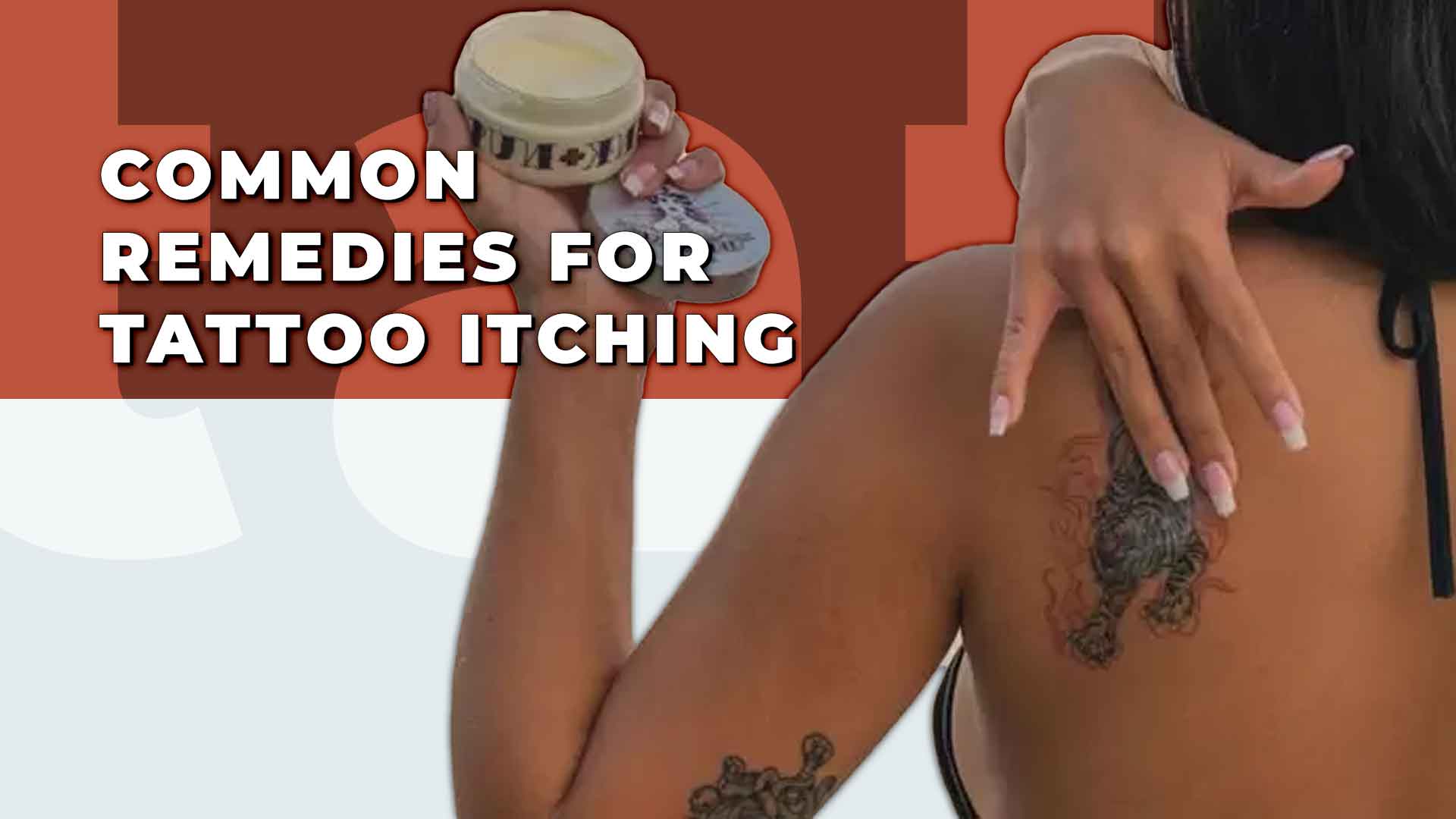
Treating an itchy tattoo depends on the cause. New tattoos are delicate, so you need to be careful not to damage them. Older tattoos can also be sensitive. Here are a few common remedies to manage Tattoo Itching:
- Avoid using over-the-counter creams and ointments on new tattoos. They can interfere with healing. But for an itchy older tattoo, you can try applying hydrocortisone cream.
- To soothe itchiness and reduce swelling, use cool compresses. Check with your doctor before using compresses on new tattoos, as they need time to heal.
- Keep the area moisturized if your skin is dry and itchy. For old tattoos, use oatmeal-based lotions or thicker moisturizers like cocoa butter. Avoid products with colors and fragrances that could irritate the skin.
- For new tattoos, ask your artist about the best way to moisturize. Fragrance-free, unscented hand lotion is usually a safe choice.
- If you have a skin condition like eczema or psoriasis, your doctor may prescribe topical creams to treat the itchiness.
- If the ink is causing the itchiness, professional tattoo removal by a dermatologist may be necessary. They can use laser treatments or other methods like dermabrasion, but remember that removing darker pigments can be more challenging and may leave a permanent scar.
Moreover, consult a healthcare professional for proper diagnosis and treatment options for your itchy tattoo.
Preventing Tattoo Itching in the Future
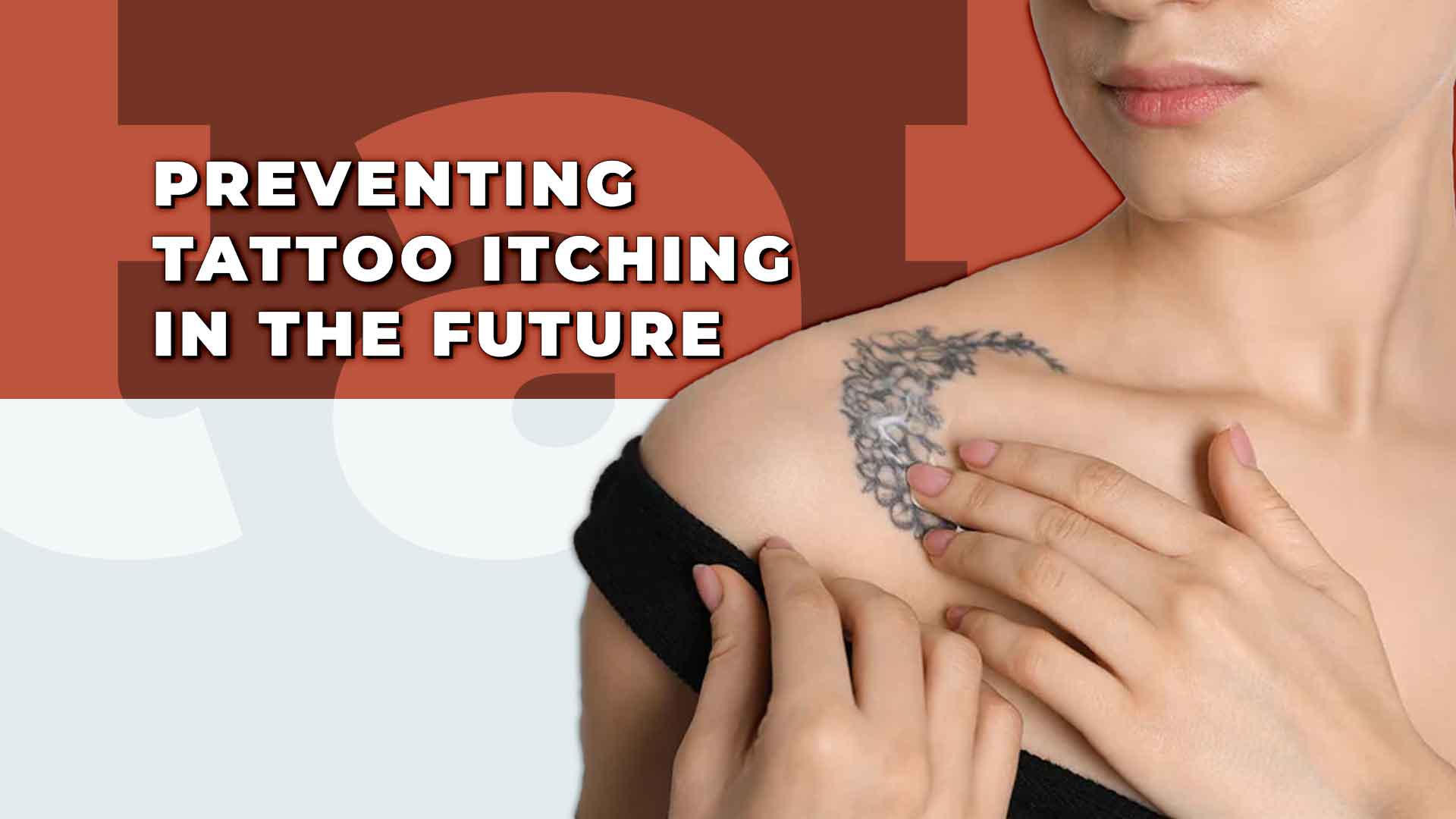
So, to keep future tattoos itch-free, you’ve got to take good care of them. Here are some tips to keep in mind:
- Follow the aftercare instructions: Listen up because your tattoo artist knows best. Follow their advice on how to care for your fresh ink. They’ll guide you on cleaning, moisturizing, and protecting your tattoo during the healing process.
- Keep it squeaky clean: Wash your tattoo gently with mild soap and lukewarm water. Give it a little love to keep away any dirt or bacteria. Don’t go crazy with harsh cleansers or scrubbing.
- Show some moisturizing love: Hydration is vital! Regularly apply a hypoallergenic, fragrance-free moisturizer recommended by your tattoo artist. Keep that tattoo moisturized to prevent dryness and those pesky, itchy sensations.
- Stay away from troublemakers: Watch out for products that might cause trouble for your tattooed skin. Steer clear of scented lotions, perfumes, or skincare products with harsh chemicals. These sneaky troublemakers can trigger itching and skin reactions.
- Shield it from the sun: Your tattoo deserves some shade. Protect it from excessive sun exposure. Keep it covered, or apply a high SPF broad-spectrum sunscreen. Let’s prevent sunburn and keep those vibrant colors shining.
- Dress to impress your tattoo: Choose tattoo-friendly clothing. Opt for loose-fitting, breathable garments that won’t rub against or irritate your precious artwork. Say no to rough or tight materials that can make the itching worse. Your tattoo deserves to be comfortable and stylish!
- Be good to your skin: Treat your skin right. Practice good overall skin hygiene. Keep it clean, moisturized, and hydrated. Resist the urge to scratch or pick at any irritations. Let’s keep infections at bay and maintain a happy, itch-free tattoo.
We’re all unique, so what works for someone else might not work for you. If you’re dealing with persistent or severe itching, or notice any signs of infection or allergic reaction, contact a healthcare professional or consult your tattoo artist for expert advice.
When to Seek Professional Help?
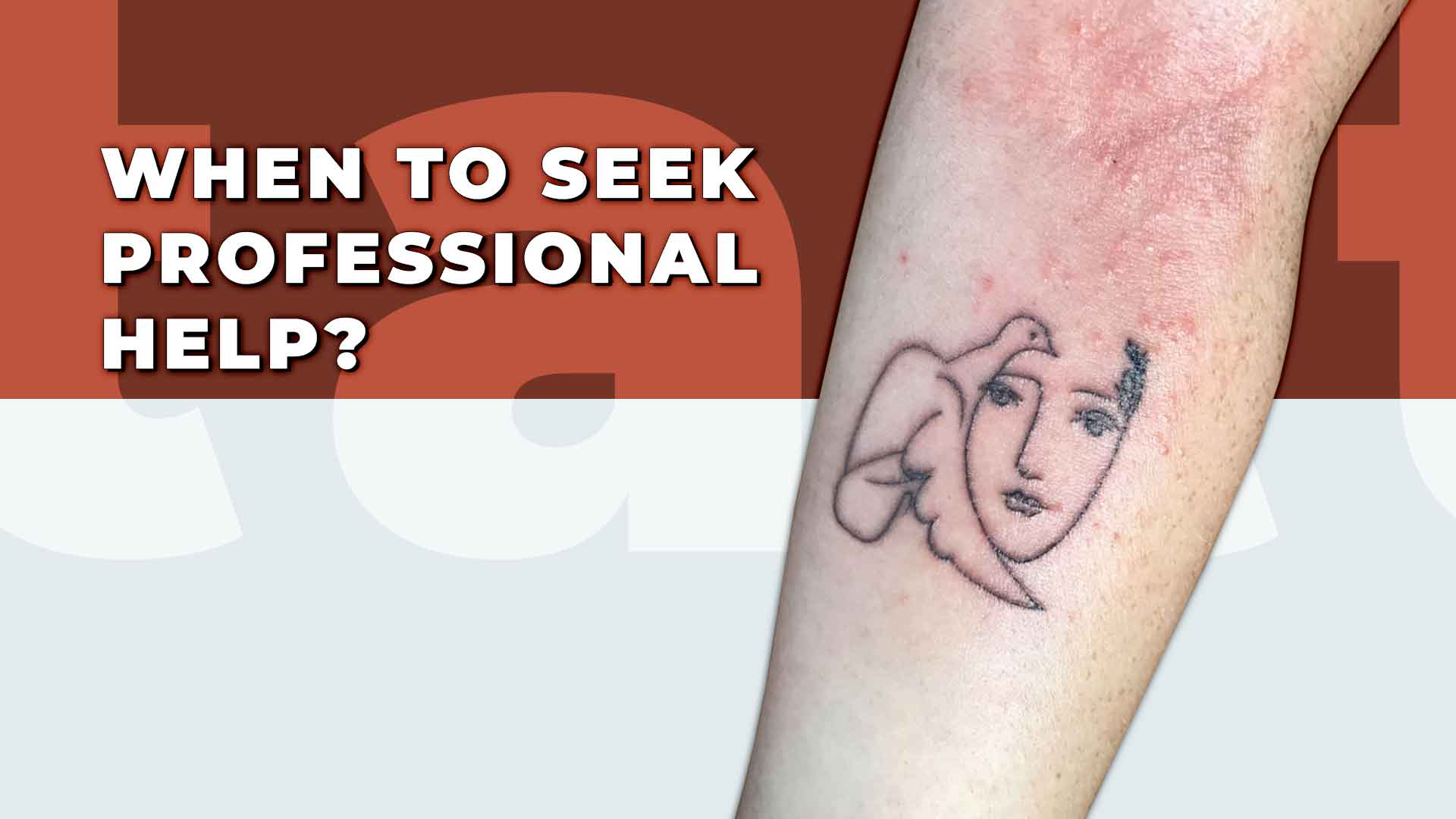
While most causes of itchiness are curable, there are times when you should reach out for expert assistance.
First and foremost, resist the temptation to scratch that itch! I know it’s tough, but scratching will only make matters worse. Trust me, you don’t want to mess up your beautiful tattoo by distorting it.
If you suspect an infection, it’s time to take action. Don’t wait until you start experiencing symptoms like fever, chills, and an overall unwell feeling. These could be signs that an infection has taken hold, and you must see your doctor.
Your doctor is the superhero who can save the day. They may prescribe antibiotics to fight off the infection and prevent it from spreading. Infections are no joke. They can lead to severe complications and even leave you with a scar on your beloved tattoo. So, don’t delay—seek professional help if you suspect an infection.
It’s always better to be safe than sorry. If your itching is severe, lasts for an unusually long time, or is accompanied by other concerning symptoms, don’t hesitate to reach out to a healthcare professional. They have the knowledge and expertise to guide you through any complications or allergic reactions to tattoo ink.
Frequently Asked Questions
How often should I moisturize my tattoo?
You should moisturize your tattoo regularly during the healing process. Aim for applying moisturizer about 2-3 times a day or as recommended by your tattoo artist or healthcare professional. Keeping your tattoo moisturized helps prevent dryness and itchiness, promoting proper healing and preserving the vibrancy of your ink.
Does Vaseline stop tattoo itching?
While Vaseline can temporarily relieve tattoo itching, it’s not the best option. Vaseline creates a barrier on the skin, which can trap heat and moisture, potentially leading to more itching or infection. It’s better to use a hypoallergenic and fragrance-free moisturizer recommended by your tattoo artist or healthcare professional for effective and safe itch relief.
What happens if I scratch my tattoo?
If you scratch your tattoo, it can have some unfortunate consequences. Scratching can damage the healing skin, disrupt the tattoo’s appearance, and increase the risk of infection. It’s best to resist the urge to scratch and follow proper aftercare instructions to ensure your tattoo heals beautifully.
Why is my tattoo itchy after two months?
It’s not uncommon for a tattoo to still be itchy after two months. It could be due to dryness, environmental factors, or your skin’s sensitivity. However, if the itching is severe, persistent, or accompanied by other concerning symptoms, it’s best to consult with your tattoo artist or a healthcare professional for evaluation and guidance.
When does a tattoo fully heal?
The entire healing process of a tattoo varies from person to person, but on average, it takes about 2 to 4 weeks for the skin’s surface layers to heal. However, complete healing, including the deeper layers of the skin, can take up to several months. Patience is vital as you give your tattoo the time to settle and look its best.

